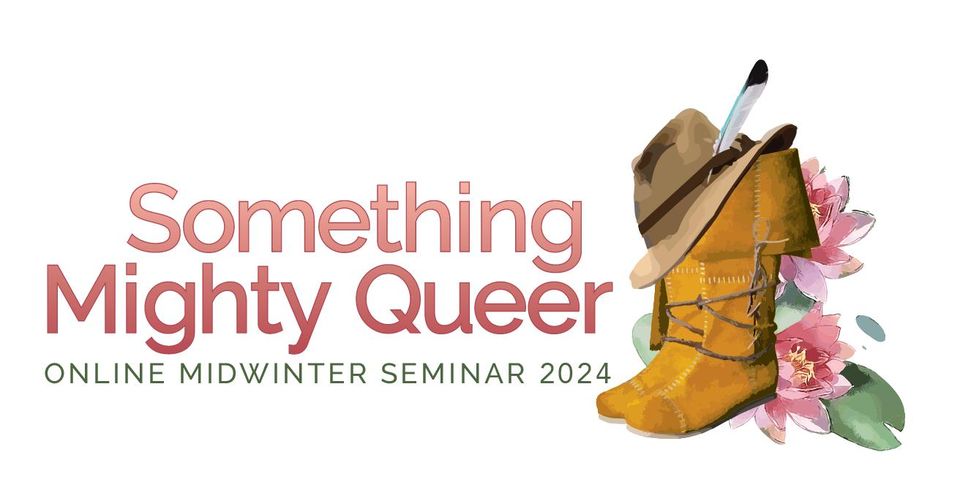Loading...
Event Website
https://www.mythsoc.org/oms/oms-2024.htm
Start Date
2-17-2024 6:30 PM
End Date
2-17-2024 7:20 PM
Description
Through an intersectional approach which positions sexuality and gender in direct
relation to cultural imperialism (O’Sullivan, 2021; Lugones, 2020), I aim to discuss the origins of Tiresias. (S)he is ubiquitous in ancient mythology: showing up in classicized texts such as Sophocles’ Oedipus Rex and Homer’s Odyssey. Interestingly too, Tiresias has been received since antiquity in texts such as Poulenc’s Les Mamelles de Tirésias, Woolf’s Orlando, and MacLaughlin’s Wake, Siren. Each receptive work transforms Tiresias through fantastical contexts and different temporalities. I aim to queer Western notions of temporality, in reading the contemporary along with the ancient. The bulk of my presentation will concern one aspect of Tiresian being: the gender-bending origin of Tiresias’ propheticism.
When told by certain ancient writers, one day, Tiresias, a man, was walking on a mountain when he saw two snakes in the process of copulating. Inexplicably, having separated these two snakes, Tiresias turns into a woman. Seven years later, separating snakes similarly in flagrante, Tiresias turns back into a man. More so than reading Tiresias as transgender, I hope to speak to how his/her gender transformation queers the very nature of what it means to have a body in ancient Greece and Rome.
Having had experiences across a gendered spectrum, Tiresias is summoned up to Mount Olympus, by Zeus and Hera, to determine who experiences more pleasure during sex: men or women. (S)he sides with Zeus, agreeing that women experience more pleasure. For this, Hera blinds Tiresias and Zeus bestows the gift of prophecy.
Due to transgressing gendered norms, Tiresias holds more knowledge than gods. My presentation will utilize an interdisciplinary approach including classical research techniques alongside those of anti-colonial and queer studies to discuss this queer figure.
Creative Commons License

This work is licensed under a Creative Commons Attribution-NonCommercial-No Derivative Works 4.0 International License.
Included in
Children's and Young Adult Literature Commons, Comparative Literature Commons, Digital Humanities Commons, European Languages and Societies Commons, Literature in English, Anglophone outside British Isles and North America Commons, Literature in English, British Isles Commons, Literature in English, North America, Ethnic and Cultural Minority Commons, Medieval Studies Commons, Modern Languages Commons, Modern Literature Commons, Other English Language and Literature Commons
Ancient Queer Bodies: the Gender Swapping Prophet
Through an intersectional approach which positions sexuality and gender in direct
relation to cultural imperialism (O’Sullivan, 2021; Lugones, 2020), I aim to discuss the origins of Tiresias. (S)he is ubiquitous in ancient mythology: showing up in classicized texts such as Sophocles’ Oedipus Rex and Homer’s Odyssey. Interestingly too, Tiresias has been received since antiquity in texts such as Poulenc’s Les Mamelles de Tirésias, Woolf’s Orlando, and MacLaughlin’s Wake, Siren. Each receptive work transforms Tiresias through fantastical contexts and different temporalities. I aim to queer Western notions of temporality, in reading the contemporary along with the ancient. The bulk of my presentation will concern one aspect of Tiresian being: the gender-bending origin of Tiresias’ propheticism.
When told by certain ancient writers, one day, Tiresias, a man, was walking on a mountain when he saw two snakes in the process of copulating. Inexplicably, having separated these two snakes, Tiresias turns into a woman. Seven years later, separating snakes similarly in flagrante, Tiresias turns back into a man. More so than reading Tiresias as transgender, I hope to speak to how his/her gender transformation queers the very nature of what it means to have a body in ancient Greece and Rome.
Having had experiences across a gendered spectrum, Tiresias is summoned up to Mount Olympus, by Zeus and Hera, to determine who experiences more pleasure during sex: men or women. (S)he sides with Zeus, agreeing that women experience more pleasure. For this, Hera blinds Tiresias and Zeus bestows the gift of prophecy.
Due to transgressing gendered norms, Tiresias holds more knowledge than gods. My presentation will utilize an interdisciplinary approach including classical research techniques alongside those of anti-colonial and queer studies to discuss this queer figure.


